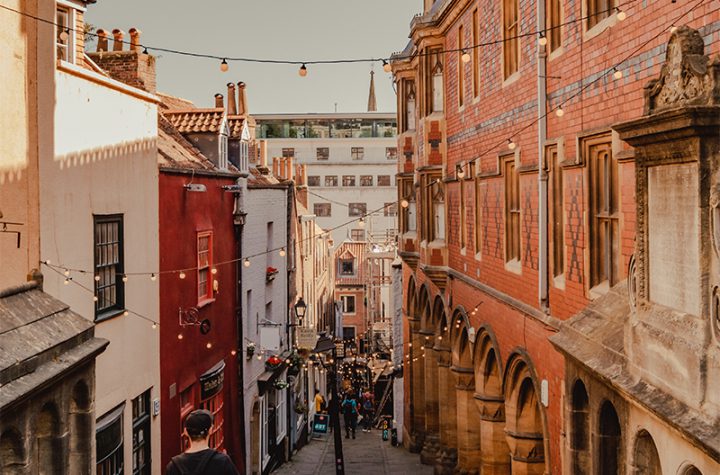
Bloomberg announced his plan to increase black wealth and address economic disparities in the United States while visiting the site of the 1921 Tulsa Race Riot. His so-called Greenwood Initiative is named for the Tulsa community destroyed in one of the most vicious racial massacres in U.S. history. As many as 300 blacks were killed, and more than 1,200 homes, churches and businesses were destroyed.When the massacre ended, nothing but rubble and ruins stretched across a once-prosperous district spanning almost 40 blocks.
Tulsa was a logical place to announce a detailed initiative aimed at reversing generations of institutional discrimination in housing, employment, banking and education. It was a humbling place for Bloomberg to admit that until recently he had never heard of Greenwood, a place that gained wider recognition this year thanks to the HBO series Watchmen. It was a compelling place to admit the privilege that comes with white skin. My story would have turned out quite differently if I had been black, and more black Americans of my generation would have ended up with far more wealth had they been white, he told the crowd in Tulsa.
For someone who has often been tone-deaf or downright insensitive when discussing race, Bloomberg spoke with candor and comfort, eschewing the gauzy focus-grouped language designed to approach hard truths without creating anxiety for white voters in swing states.
For hundreds of years, America systematically stole black lives, black freedom and black labor, Bloomberg said. A theft of labor and a transfer of wealth enshrined in law and enforced by violence.
For black voters who have been watching the Bloomberg campaign with a skeptical side-eye, all of this was stupendously ironic, supremely bold or both.
Bloomberg is still associated with New Yorks stop-and-frisk program and the harmful legacy it created by aggressively targeting black and brown men. The numbers speak for themselves. During Bloombergs three terms as mayor, police stopped and searched people they thought were involved in some sort of crime more than 5 million times. The vast majority were young black and Latino men. For many African American voters, his campaign is a non-starter.
Not long ago, Bloomberg was steadfast, even stubborn, in his support of stop-and-frisk. He defended it even after a federal judge decreed it unconstitutional in 2013. Last spring he maintained that his unwavering stand might make it all but impossible for him to mount a presidential run and said he was not willing to embark on an apology tour.
Welcome to the tour.
Bloombergs first public expression of regret came at a Brooklyn church one week before he announced his campaign, which cue the side-eye looked opportunistic. The questions, and the apologies, keep coming. I apologized when enough people said to me You were wrong, and I thought about it, and I wish I had done it earlier. I just didnt, Bloomberg told panelists on the The View.
He has found a story to explain his shift in thinking, and he is carefully sticking to it. But this is a moment when he needs to go off script if he is to have any hope of winning over black voters.
Bloomberg is going to have to figure out how to speak less like a billionaire and more like someone who truly empathizes with the quavering anxiety a mother faces when she sends a child down the street to buy milk, wondering if a police officer will see her son and automatically think that he might be up to no good. He is going to have to find a better way to appeal to men who blame him for putting a bulls eye on their backs every time they hustled off to work or headed to the bus stop.
Stop-and-frisk was a New York City program, but the policy sparked a national outcry challenged in courts, debated in academia, blasted in rap lyrics and eventually adopted by other cities. In the age of Black Lives Matter, apology is not enough. On this issue, black voters, especially young black voters, are looking for atonement.
Its not yet evident that Bloomberg can clear that hurdle. But his recent moves and the fact that he has enough money to create his own weather suggest that writing his political obituary among black voters might be premature. He has been reaching out to high-net-worth African Americans and asking for advice not money, advice. He has won the endorsements of a number of former and current American mayors, including Mayor Steve Benjamin of Columbia, S.C.; Mayor Michael Tubbs of Stockton, Calif.; Mayor London Breed of San Francisco and former mayor Manny Diaz of Miami. Even skeptical black voters might listen to a candidate who prioritizes building black wealth over standard entreaties about eradicating poverty.
Voters will never forget Bloombergs record as New York mayor. Forgiveness might be a step too far. But with so much at stake in November, Bloomberg is showing that he might be able to forge a pragmatic truce: doing the hard work of trying to earn black votes after years of backing a policy that tarnished so many black lives.
Read more:
Rachel Figueroa: Bloomberg asked @ElBloombito to help his campaign. Heres why I said no.
Jonathan Capehart: Billionaire Bloomberg snags the only Benjamin that matters in South Carolina
Jennifer Rubin: Bloomberg is a very good insurance policy for Democrats
Jonathan Capehart: Why Bloomberg wont be the Democratic nominee
John Ellis: Mike Bloomberg will soon be Democrats dream candidate





More Stories
After a cluster of new COVID-19 cases among the White House staff and a campaign offical, the election night watch party in the White House has become another symbol of U.S. President Donald Trump’s cavalier attitude toward a virus that is ripping across the …
Rob Lucas says the SA economy is forecast to go backwards by 0.75pc in 2020-21, a better outcome than a national economy forecast to shrink 1.5pc.
Labor and crossbench senators want changes to JobMaker, arguing too many workers will be excluded from the hiring credit scheme.